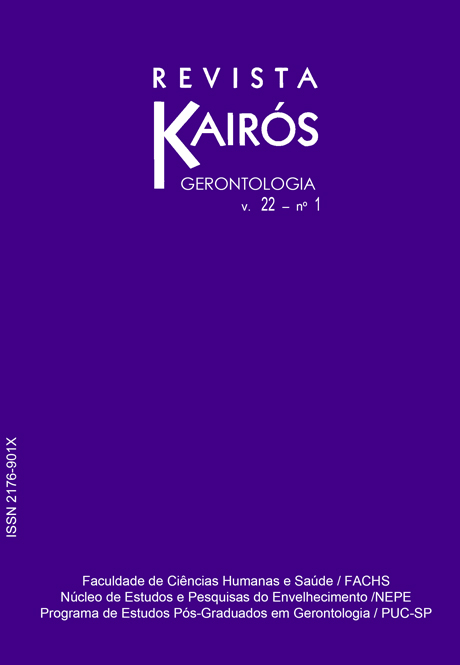Perception of quality of life and psychomotricity of institutionalized elderly in different contexts
DOI:
https://doi.org/10.23925/2176-901X.2019v22i1p307-328Keywords:
Aging, Institutionalization, Quality of Life, Psychomotor Functions.Abstract
This study objective us to identify quality of life (QoL) and performance in tasks that require psychomotor skills and to verify possible associations between the various dimensions of QoL and psychomotricity. The sample consisted of 30 institutionalized elderly individuals, including 15 Brazilians and 15 Portuguese, of both genders, aged over 65 years. Whoqol-bref was applied to evaluate QoL. The evaluation of psychomotor functions was through the Questionnaire on Psychomotor Tasks in the Elderly. The results related to the evaluation of QoL and psychomotor functions were not observed significant differences between the ILPIs. After evaluation of Whoqol-Bref, in general, QoL is interpreted by the elderly as good, with a higher score in the domain 'Social Relations' that includes the 'social support', reflecting the good service in the evaluated ICIs. However, the worst score was for the 'Psychological' domain that addresses issues related to body image, positive and negative feelings, and may be associated with the restricted practice of physical and cognitive activities in institutions; also justified by the results of the evaluation of psychomotor functions with the lowest scores in the 'memory' and 'balance' aspects.


